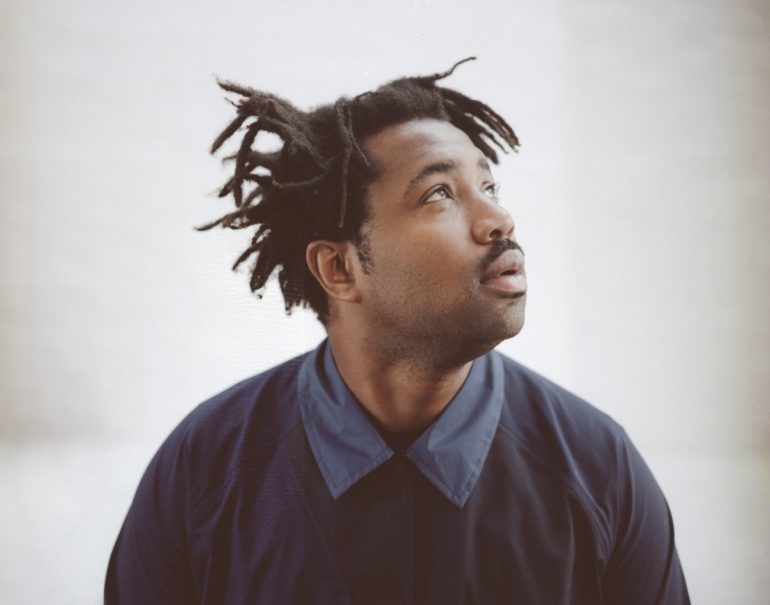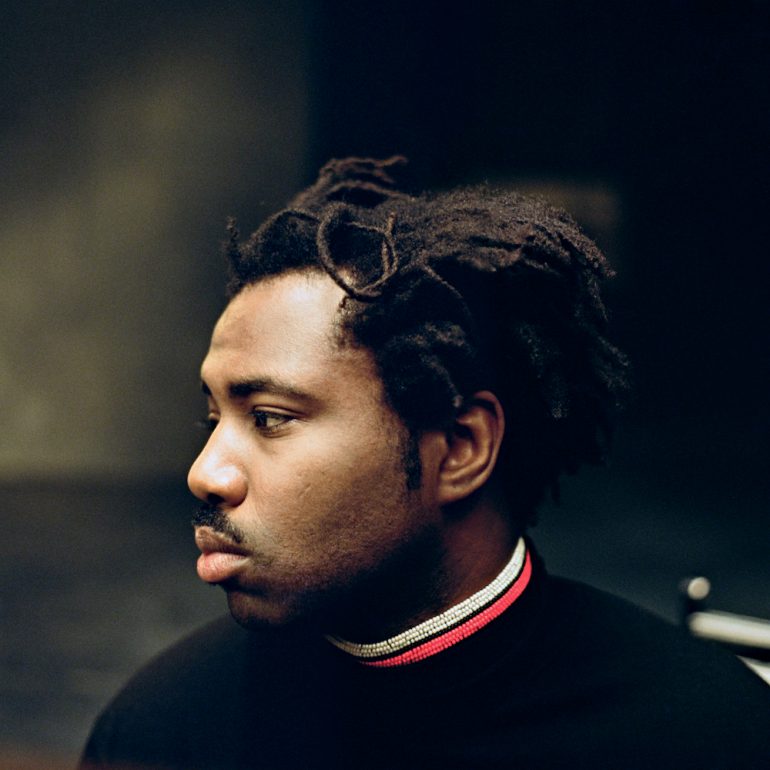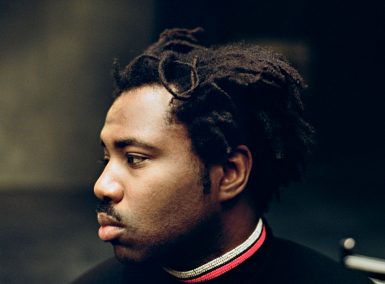
There are some voices you’ll never forget. There’s ARETHA FRANKLIN, ELVIS PRESLEY, OTIS REDDING and so many more. And then there’s Sampha Sisay, one of the greatest voices of our generation. Probably everyone has heard a track of his, whether it’s one of his numerous collaborations with SBTRKT (Hold On, Trials Of the Past etc.), DRAKE (Too Much) or KANYE WEST (Saint Pablo).
I meet with the Londoner in Berlin’s venue Kantine am Berghain, where he’s going to perform later on. It’s cold on this afternoon on the 9th of November, not just the weather but also in general: We woke up to the news that Donald Trump became the 45th President-elect. I tell SAMPHA that it’s not a nice day to do an interview or play a concert and he agrees: ‘A little bit. I’m not fully, my mind’s a little bit preoccupied.’ Not with Trump but with the concert later on. That doesn’t have to do with fear of limelight though, the 27-year-old is just a perfectionist who wants to make the live experience as perfect as possible:
A lot of music of the album I just want to play it live. Even I’m using electronic SVDs, triggers and stuff. But I want to be able to speed up in a song and slow down if I want to. Some of these things take time. Takes me years to record an album and suddenly they want to me to do a show in a month. It doesn’t really work like that. I want to do it when I feel comfortable to do it.
The concert in Berlin is one of the first solo appearances for the artist. And yet, our interview is more than three months before the release of his debut album Process. That the making of the album actually became a three-year-long process from its start in mid 2014 to its release in February 2017 isn’t due to creative issues though, but because of the cancer of his mother.
SAMPHA grew up in Morden, London as the youngest of five children of an immigrant family from Sierra Leone. His dad died when he was 9 years old; when his mum was diagnosed with cancer in 2010, Sampha would care for her. The death of his mother in September 2015 led him into putting his very personal emotions at that time into his lyrics:
Grief really brings a perspective that I do at Process ’cause it’s a very heavy process, very raw feeling that going through my adult life is different than when I was younger. It was more going me through, the importance of actually processing things or talking about things. The father of someone who is close to me passed away recently and they were asking me a lot of questions like ‘How did you deal with this’ or do now and I was like ‘I actually don’t know’ and I thought I processed but I haven’t actually thought about this stuff. The pain isn’t there in my everyday life. All those things have been composted in those words really.
In our conversation SAMPHA proves to be a sensitive and reflective character. Not somebody who’s shy or even socially anxious, but somebody who’s comfortable with being more quiet than other people. It feels as if discussing personal issues such as the death of his mother and going through grief is more difficult for me to ask than for him to talk about. His sensitive soul is something he also notices when listening to his own music: ‘It’s usually when I listen to some hard trap hip hop and listen to my song directly afterwards, that gives me some perspective of what I’m doing. ’cause I produce I kind of hear there’s a lot in the way I sing that informs how the music goes. I’m a really sensitive soul.’

Sampha. London, 2016.
What makes SAMPHA‘s voice even more sensitive is a lump that he carries in his throat, that couldn’t get diagnosed by doctors. This issue finds its place in the album opener Plastic 100°C.
Yet, he doesn’t feel anxious about sharing his very personal lyrics to larger audiences:
When it comes to performing in front of crowds there’s so much going on that I actually find it helpful to have something personal to give. That’s the thing I can connect to, that’s the thing I can lose myself in. I try and it’s important for me to have something I can really feel. That’s essentially what everyone’s there for. To feel something real. It doesn’t have to be real as in autobiographical but for me that’s one of the things I’ve learned now, performing shows is like ‘Don’t forget about the song ’cause you can easily forget about the song, you can kind of go through the motions, be an automatic.
And being in the audience of his concert later on in Berghain Kantine – a small Berlin venue with a capacity of 300 people – does really feel like witnessing something that people would still talk about months after. There are songs to cry to, songs to twerk to and songs to just sing along. And for SAMPHA himself, the journey of creating Process already resulted in him finding his voice not just through songs of others, but through his own.
‘For me, hope sometimes is letting go. Sometimes just letting go of uncertainty, pain. The ability of letting go. It’s a kind of spiritual word. A way of getting through things. A part of that is letting go’, he tells me at the end of our interview.
It’s his musical variety and honesty that will put him out of the shadow of his big collaborator names and establish SAMPHA as one of the best solo artists of 2017.



